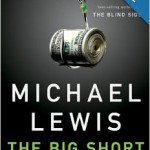How about the board’s granting of the right to engage in those purchases?
Answer: No.
Link: In re Sirius XM Shareholder Litigation
Background
In 2009, Sirius was hurting. Liberty Media was nice enough to provide $530 million for a 40% interest, some board seats and some consent rights. The agreement included a standstill provision preventing Liberty from gaining majority control for three years. Following the standstill period, the agreement prevented Sirius from using a poison pill or charter or bylaw amendment to interfere with additional purchases of Sirius stock by Liberty. The investment and agreement were disclosed publicly.
At the end of the standstill period, Liberty announced it would obtain a controlling position through open market purchases. Sirius opposed it, and even opposed the FCC approval that Liberty would need in order to obtain majority control. However, Liberty was able to get its majority stake.
Plaintiffs sued claiming breach of fiduciary duty on the part of Liberty and the Sirius board of directors.
Fiduciary Duty Claims Against Sirius Board
The court initially noted that the time period for fiduciary duty claims ran from the time of the agreement in 2009, and thus their claims were time barred. The plaintiffs also argued that the board should have instituted a poison pill to prevent Liberty’s additional purchases, the court said this was not the wrongful act. The plaintiff’s complaints arise out of the initial agreement in 2009, and the plaintiffs did not have a good reason for waiting to file a lawsuit. The terms of the deal were fully disclosed in 2009, and the board’s inability to stop Liberty’s purchases were based on the 2009 deal.
Anything the board did that is subject of the plaintiffs’ complaint was based upon 2009 activity and, therefore, the statute of limitations ran from 2009. As the court said, “[u]nder Delaware law, a plaintiff’s cause of action accrues at the moment of the wrongful act – not when the harmful effects of the act are felt – even if the plaintiff is unaware of the wrong.”
Fiduciary Duty Claims Against Liberty
The Plaintiffs also argued that Liberty had a fiduciary duty even if it was a non-controlling shareholder when it initially invested in 2009. This duty of fairness would preclude Liberty from buying additional shares in the open market unless the Sirius board approved the terms.
The court disposed of this claim as well. First, they are time-barred because they were still the product of the arms-length negotiations and deal in 2009 when Liberty was not even a stockholder, much less a controlling stockholder. Second, open market purchases after disclosing the intent to make such purchases do not involve any control over Sirius’ board or misuse of Sirius’ resources by Liberty. There was no allegation of insider trading or an attempt to effect a going private transaction. To the contrary, even the plaintiffs conceded that Liberty’s purchase announcement would result in the market price for the Sirius shares to increase prior to purchase. As a result, what the plaintiffs are really claiming is a repackaging of their opposition to the 2009 deal.
The only real complaint of the plaintiffs is that the board did not institute a poison pill, which was not only prohibited by contract but is not actionable under Delaware law without additional bad acts (recall the Landry’s case, Louisiana Municipal Police Employees’ Retirement System v. Fertitta, 2009 WL 2263406 (Del Ch. July 28, 2009)).
The court finished with its adherence to basic corporation law and contracts:
“There are many situations when corporations enter into contractual arrangements that have important implications for corporate control in conceivable future situations; for example, debt instruments commonly give creditors rights that, if used, may result in their assuming control. The use of such rights to obtain control in the situations specifically contemplated by those contracts does not constitute a fiduciary breach. As this court has explained, even “[a] controlling shareholder is not required to give up legal rights that it clearly possesses; this is certainly so when those legal rights arise in a non-stockholder capacity.””





